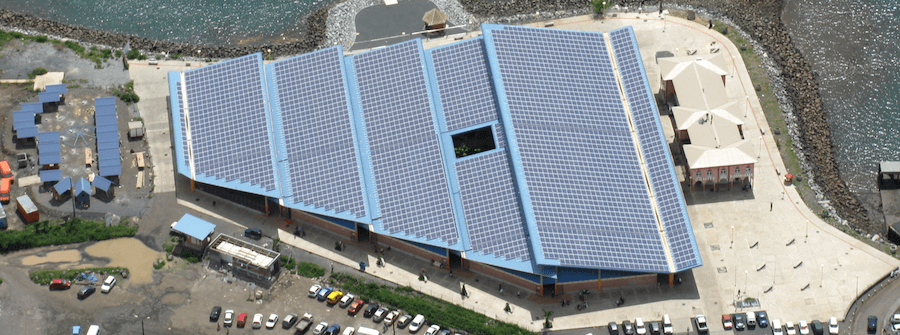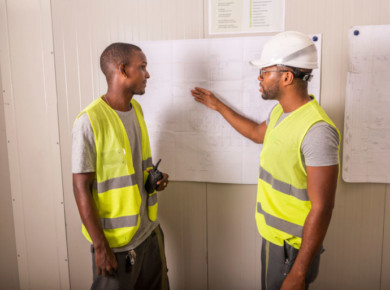In 2015, France’s “Energy Transition for Green Growth” legislation fixed a target of providing 32% of the energy mix through renewable energy by 2030. This objective, which results in increased production capacity, still raises the question of land availability, particularly in Overseas France. How do we continue to deploy new renewable energy projects without simultaneously hindering the growth of other activities? And furthermore, how do we produce more electricity in our solar energy and biomass plants while also preserving existing natural and agricultural areas?
Sustainable resource management
Although sugar cane was introduced into Overseas France in the 17th century, it was only in the 19th century that its culture became really widespread in these territories in place of spice and coffee plantations. In Réunion Island, it occupies 60% of the agricultural land, mainly along the coastline, while virgin forests still cover 35% of the island. Awareness of the problems caused by deforestation soon led to the creation of laws and departments for protecting our natural heritage, which is exceptionally rich in Overseas France. Conscious of the fragility of these ecosystems, Albioma is aiming to increase the share of biomass fuels used in its thermal power plants, in cooperation with the local players. Several initiatives illustrate the group’s commitment to the environment, such as the partnership signed in 2015 with the National Office of Forests in Martinique or the framework convention signed in 2017 with the Réunion Regional Council to develop new local lines of supply with no conflicts of use.
Whenever the use of a raw material conflicts with other potential uses such as supplying food or providing housing on the land used, we speak of a “conflict of resource use”.
Territorial integration with no conflicts of use
As the production of renewable energy from bagasse relies on partnerships with the sugar industry, Albioma carefully selects the land on which its plants are located, avoiding the use of agricultural land. In the case of solar energy, French legislation has followed the same lines since 2009 by requiring a preliminary impact study on all new projects and prohibiting the use of agricultural land. As a result, the group builds its photovoltaic parks on artificial surfaces, such as the roof of Mamoudzou market in Mayotte, or on land unsuitable for other activities. Former quarries, waste dumps, scrubland and industrial ground are just some examples of unused areas in which solar power plants can be built. In Réunion Island for example, the Star plant is located on an operating landfill site, making double use of this land. This type of mixed project will be increasingly frequent in the coming years.
See a video showing how we ensure a stable mains power supply in Martinique, Guadeloupe or Réunion Island with our biomass-burning power plants.


